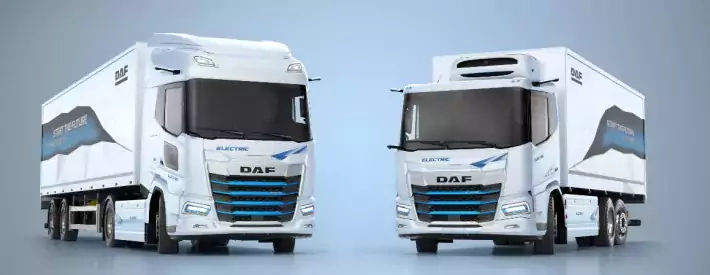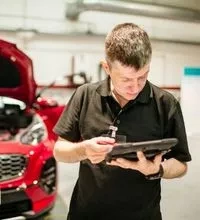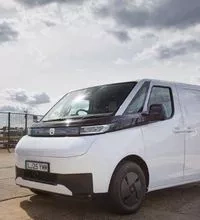Five standout reveals at the IAA Transportation show

The commercial vehicle sector is embracing technologies to make vehicles more efficient and better able to serve businesses. Here are the standout unveilings from the latest IAA Transportation show in Hannover
DAF XD and XF electric trucks
The new XD and XF Electric trucks feature completely new modular drivelines for ‘zero emission’ ranges from 200km to over 500km on a single charge and are available as tractor and rigid models.
The vehicles integrate PACCAR e-motors, delivering outputs from 170kW to 350kW, and in combination with battery packs of up to 5 strings, fully electric ranges can be tailored to the needs of the business operating them.
And to keep them on the road they can be fast charged at 325kW, allowing a 3-string battery pack to be boosted to 80% of its capacity in just over 45 minutes. Available as an option is an on-board charger with the capability of alternating current (AC) charging up to 22 kW. This provides flexibility to operate the vehicle where DC chargers are unavailable.
ZF hooks up with Freudenberg to boost hydrogen tech
ZF’s commercial vehicle division is working with fuel cell and battery systems supplier, Freudenberg e-Power Systems to create hydrogen powertrain technology for commercial vehicles.
The partners will develop technologies consisting of a fuel cell and drivetrain system. The initial focus of the agreement is to develop an integrated fuel cell e-drive solution for commercial vehicles. Freudenberg will offer scalable e-power systems in kit form with various power outputs, while ZF will offer complete electric driveline systems of up to 360 kW continuous power.
The pilot phase of the cooperation agreement is currently underway with prototypes for bus and truck demonstration vehicles being developed. The first prototype is expected by 2023.
Schaeffler maximises motor efficiency
No matter what’s fuelling the commercial vehicles of the future, the likelihood is that it’ll need an electric motor, so the more efficient the better.
Schaeffler’s new high-performance electric motors are scalable, robust and efficient - over 97%. The technology uses an oil cooling system and wave winding technology in the stators. The latter isn’t used very widely yet, and allows the electric motors to have very high power densities. Schaeffler is developing its electric motors in various scalable series to cover all power classes cost-effectively despite the comparatively low electric drive production volumes in the commercial vehicle sector. The motors will be used in on-road and off-road vehicles, fully electric and hybrid drives, and in both electric axle and central drive configurations.
BYD gets people moving with new eBus platform
The new adaptable eBus Blade Platform, incorporates the ultra-safe, and durable Blade Battery. The system passes the punishing demands of the nail penetration test, regarded as the ultimate battery safety test. The Blade’s Battery cell to pack technology improves rigidity compared to traditional structures, giving it superior strength. The space-saving design of the Blade Battery, representing a 50% reduction, is inherent to the eBus Blade Platform development, enabling increased battery capacity for a longer driving range, while also reducing chassis weight.
That should mean happier customers and a better business model for operators, especially as more towns and cities look to reduce local emissions, improving air quality and getting more people on public transport.
Bosch takes the hydrogen highway
Getting the balance right between efficiency, emissions and on-road time is the quest so many companies are on. Bosch is widening its research to include hydrogen as it looks to find the perfect powertrain technology for light-commercial vehicles.
Vans get goods to their destination quickly, ideally using a powertrain with zero local emissions. But the longer the journey and heavier the vehicle, the more a battery-based electric drive reaches its limits. And that is where the strengths of the fuel cell come into play.
Bosch has now equipped two vans with this technology and started test operation on the road. The project is already providing important insights: even loaded, the vehicles can travel up to 540km and are fully refuelled again in six minutes.




